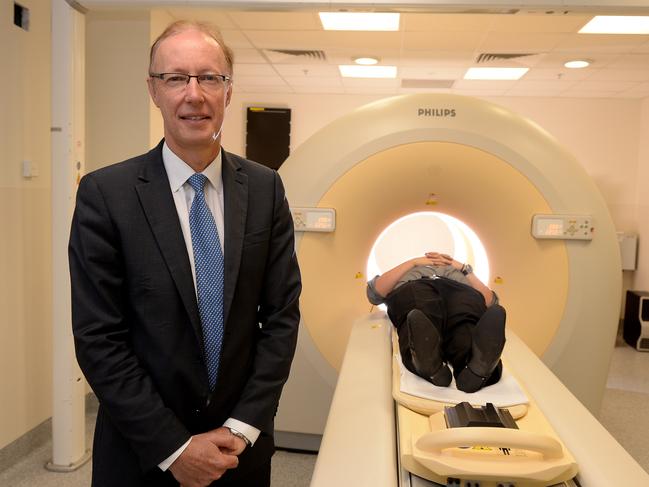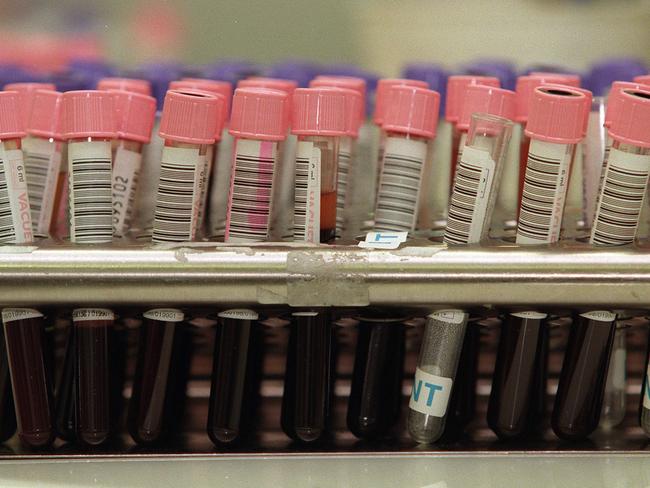Simple blood test could ‘revolutionise’ detection and diagnosis of Alzheimer’s disease
A simple and cost effective blood test will be able to detect Alzheimer’s disease quicker and more accurately, Melbourne researchers at The Florey Institute have found.
Victoria
Don't miss out on the headlines from Victoria. Followed categories will be added to My News.
A simple and cost effective blood test will be able to detect Alzheimer’s disease quicker and more accurately, Melbourne researchers have found.
The Herald Sun can reveal Florey researchers and Australian research volunteers have evaluated a new diagnostic blood test for Alzheimer’s as part of a new study and found it to be a reliable measure of the disease’s presence and stage.
It means that the blood test has been shown to work well on widely-used clinical pathology equipment and not just on specialised research devices.
Researchers found the test showed a 92 per cent accuracy in detecting the disease among the study’s 388 participants.

The study’s senior author Professor Christopher Rowe, who is the clinical lead of The Florey’s Dementia Mission and Molecular Imaging Research director at Austin Health, said the test proved “highly reliable” and more cost effective in the Lumipulse equipment.
“We compared patients’ blood test results with a PET scan and found that plasma pTau217 not only confirms whether somebody has Alzheimer’s disease, but whether they are at intermediate or advanced stage versus earlier stages,” Prof Rowe said.
“What’s different about this test is that the earlier blood test used research equipment, whereas this one was done on commonly available clinical pathology equipment.
“The cost is going to come down dramatically. You can get a blood test done at the moment, but it has to be shipped off to America and costs $1500.
“We think the costs of this new test will be close to $100.”
Prof Rowe said the test would “revolutionise” the detection and diagnosis of Alzheimer’s disease.
“Diagnosis, even by specialists, is only 70 per cent accurate, whereas the accuracy of the diagnostic blood tests is over 90 per cent,” he said.

Access to the test in clinical practice still requires TGA registration in Australia, which could be another one to two years away.
Access to Medicare may take up to two years beyond that.
“In the United States the test is available and their Medicare system is just negotiating a price to pay for it,” he said.
Prof Rowe said the blood test provided some “certainty” to patients about the disease’s progression.
“It leads to an adjustment that can sometimes reduce conflict in a family,” he said.
“It can enable appropriate measures to protect the person from scammers. This is a real problem as people with Alzheimer’s disease are becoming real targets.
“It also helps with appropriate preparation for the future, which means the family and workplace can adjust and finances can be put on direct debit, so you don’t miss paying bills.
“It’s extremely important that we get these early diagnostic tests.”
Co-first author Azadeh Feizpour said: “With a new generation of drugs emerging to treat Alzheimer’s disease, detecting a person’s stage of disease is going to be important.”
Originally published as Simple blood test could ‘revolutionise’ detection and diagnosis of Alzheimer’s disease


